My story with Korean culture began in 2013, when I felt I had lost my passion for American movies and TV series. It seemed to me that most of them started carrying messages that conflicted with our culture and beliefs. Then came the beautiful discovery.
My friend was watching a subtitled Korean drama on MBC4, which had started airing this type of content since 2011. I entered this new world unaware that I would never leave it. Since then, Korean dramas, music, and culture have become my true source of joy. It wasn’t just a hobby; it became part of my lifestyle and opened the way to friendships I never imagined. I met many friends, and we formed groups on WhatsApp where we shared talks about our favorite bands, impactful scenes, and the passion that many around us did not understand.

Sudanese and South Korean flags. Source: Shutterstock
I was sometimes subjected to bullying and mockery, from family, friends, and even colleagues at work. I used to hear comments and some even mockingly called me "Walaa Shing Shong" or Oshin. However, I didn’t care. I was doing what I loved, something that brought me a kind of happiness they couldn’t understand. It’s strange how people often attack what they don’t understand and mock what’s different instead of making an effort to understand it.
During that time, in 2015, the Korean Embassy in Sudan established the Korean Corner on the ground floor of the Information and Language Technology Center at Al-Zaeem Al-Azhari University, with the aim of promoting and teaching Korean culture. The center itself had been built in 2007 through a grant from KOICA (Korea International Cooperation Agency), the development aid agency of the Republic of Korea.
It was a unique space for anyone interested in learning the Korean language and exploring the culture. The center included a library filled with Korean language textbooks, K-pop albums, magazines, and materials on tourism and life in Korea. I truly felt at home there.
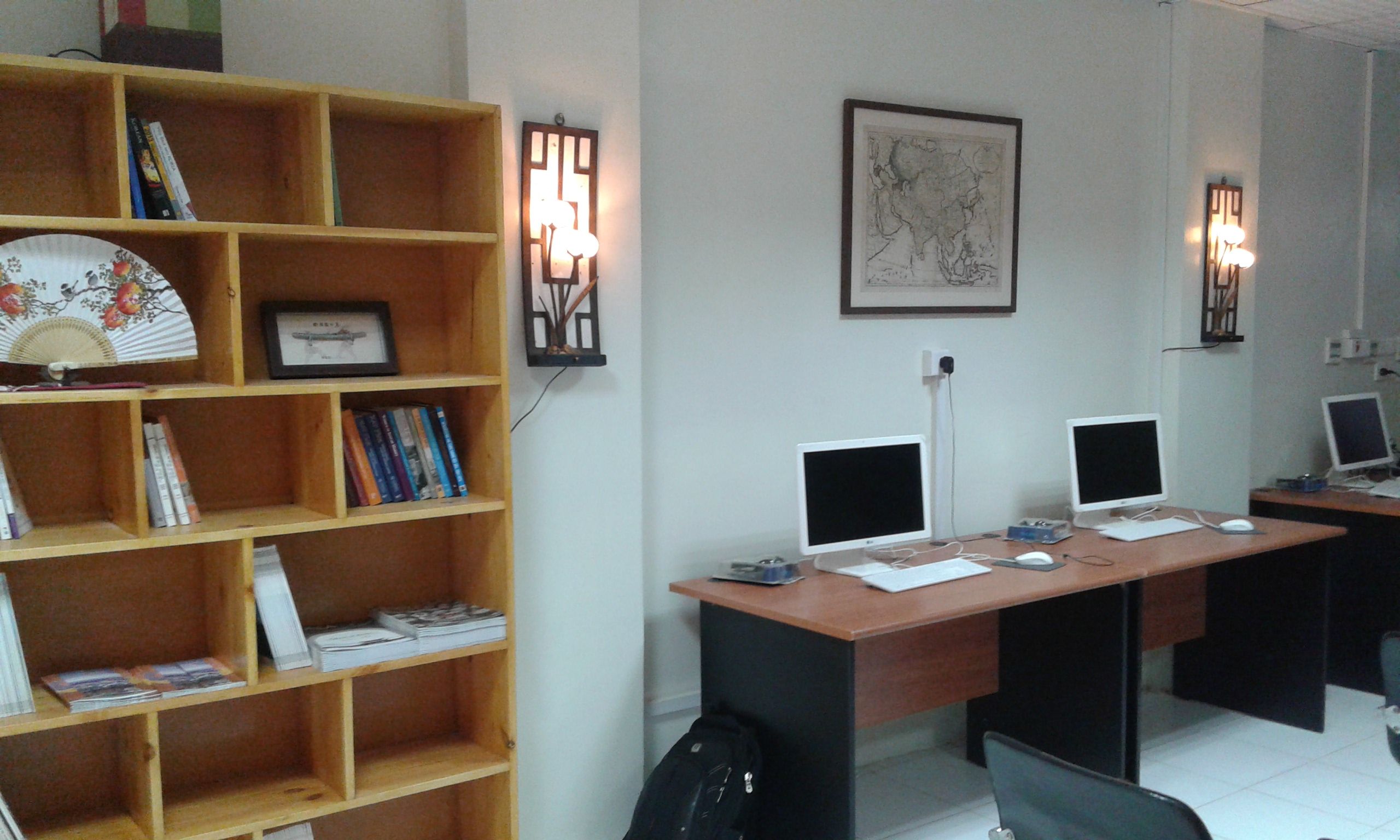
The Korean Corner. Source: Al-Zaeem Al-Azhari University website
At the time, Korean Ambassador H.E. Park Won-sup stated in an article: "The Korean Wave, also known as the “Korean flow” or Hallyu, had swept across the globe, bringing South Korean culture to all corners of the world." He pointed out that Korean popular music (K-Pop) and dramas (K-Drama), have become favorites for millions of people who regularly follow bands, musicians, stars, movies, and TV programs. “For individuals and families,” he said, “Hallyu offers a window into Korean culture, society, and language, serving as an educational journey to Korea.”
South Korea is using the Korean Wave to promote its traditional culture at home and abroad.
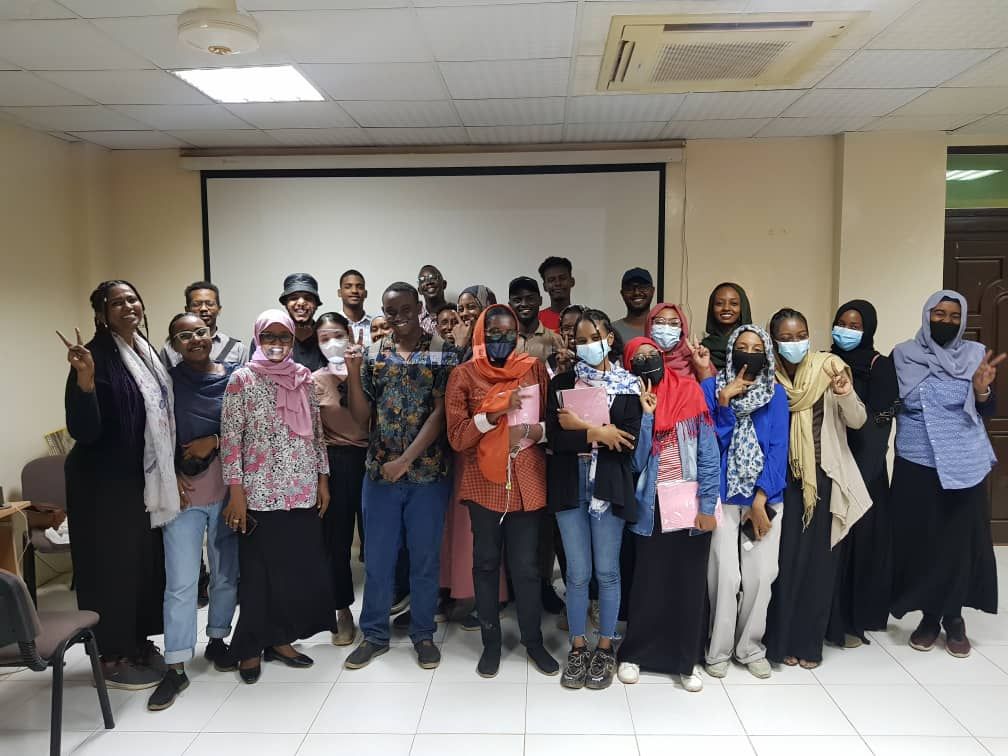
The photo is from the Al-Zaeem Al-Azhari University webiste, as the Korean Corner is considered part of its facilities—but I can recognize the faces in it.
We attended several events organized by the Korean Embassy. I remember one in particular, a celebration of Sudanese-Korean relations, attended by many diplomatic figures. Another memorable event was a dinner invitation at the ambassador’s residence, held for regular visitors of the Korean Corner.
We had the chance to speak with the Korean ambassador at the time. He was genuinely interested in hearing our thoughts about Korean culture and what young Sudanese people enjoy. It was a warm, enjoyable gathering, and what truly stood out was the Korean food, which, from that day on, became one of my favorite cuisines.

The dish I filled that day had everything delicious.

The gift the ambassador gave us that evening.
This world opened new doors for me, doors of understanding, connection, and openness to others. I met people with different ideas and perspectives, which broadened my horizons and taught me so much. What I’m most proud of is that I no longer place limits on my ambitions. I’ve learned not to be held back by the criticism of those who don’t understand my passion.

I was part of the organizing team for the Korean-Arab Friendship Caravan Tour 2016 held in Sudan, which was held at the Friendship Hall.
In 2016, I took a step that those around me described as crazy. I decided to work hard and save money to attend KCON in Abu Dhabi, a global festival celebrating Korean culture, which began in 2012 and is held in various cities around the world.
It wasn’t easy for a Sudanese girl surrounded by puzzled looks and constant questions about the value of this “strange obsession.” But inside me was an indescribable desire, to see, in real life, what I had only watched on a screen…to hear the language I loved being spoken around me… to immerse myself in a cultural atmosphere that, despite being far away geographically, felt deeply familiar to me. I worked long hours, even overtime, saved up the money, and I traveled.
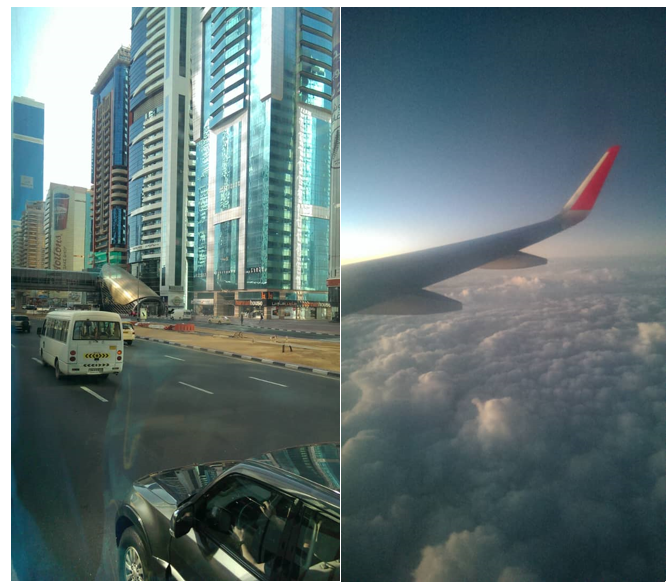
My journey took me from Khartoum to Dubai, and then by bus to Abu Dhabi.
That trip felt like a rebirth. I walked alone in a foreign city, entered the festival with a heart pounding with excitement, and was overwhelmed with emotion as I witnessed how passion could create an entire world of its own.
I met people from different cultures, but we all spoke the same language: the language of admiration and love for all things Korean. That experience changed me in many ways. It reshaped my identity, from a hesitant girl to a confident woman who knows what she wants and goes after it without fear. It was a moment when I realized that a dream, when pursued with true passion, doesn’t stay a dream, it becomes a turning point.
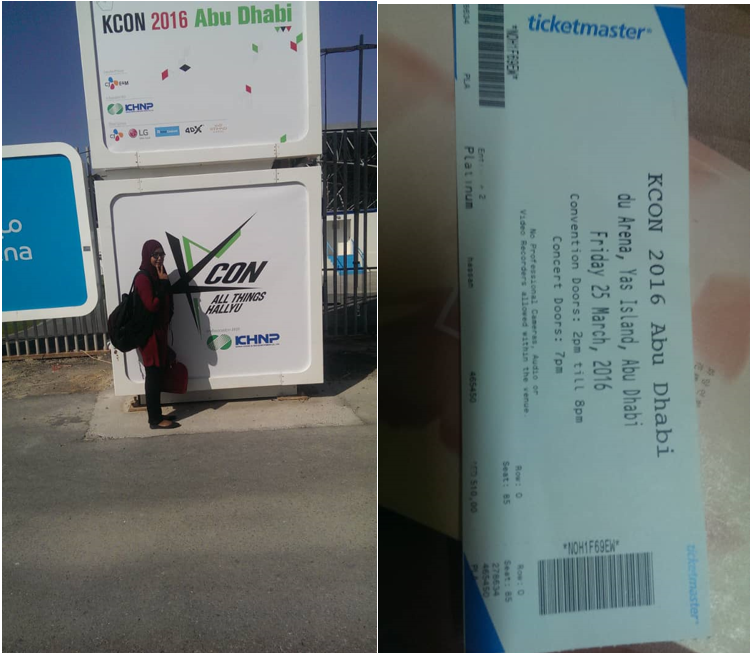
Excitement overwhelmed me outside Du Arena, and the ticket that I worked so hard for.
In 2021, after the COVID-19 pandemic, my siblings and I began thinking about launching a business of our own. I suggested the idea of creating a café dedicated to the fans of Korean and Japanese culture. It was an unusual and unfamiliar concept, especially since there were no cafés like this in Khartoum at the time. Nevertheless, we embarked on it with enthusiasm.
I named it "MicroCosmos Kpop & Anime themed Café", as the word (MicroCosmos) means a small universe. I wanted the name to fully capture our idea: that here, in our modest little corner of Khartoum, we were creating a world of our own. A small space, yes, but to us, it felt like an entire universe. The name also holds a special place in my heart, as it’s the title of my favorite song by my favorite band, BTS, a song that has always embraced my inner world and given me strength whenever I stumbled.
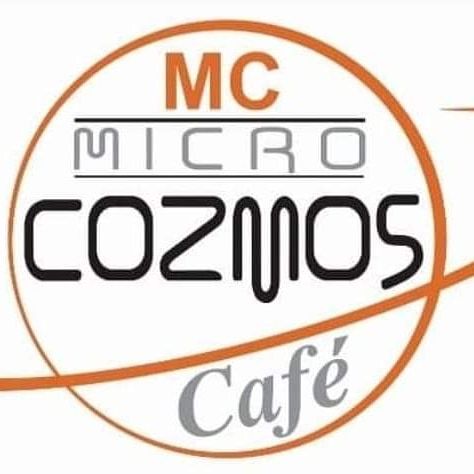
The cafe logo.
This business is one of the achievements I’m most proud of in my life. My siblings and I worked incredibly hard, they provided the funding, and I brought the vision and ideas. As someone deeply passionate about these unique cultures, I knew exactly what future visitors to the café would be looking for. We designed everything with K-pop and anime fans in mind, from the decor and music to the menu and overall atmosphere.
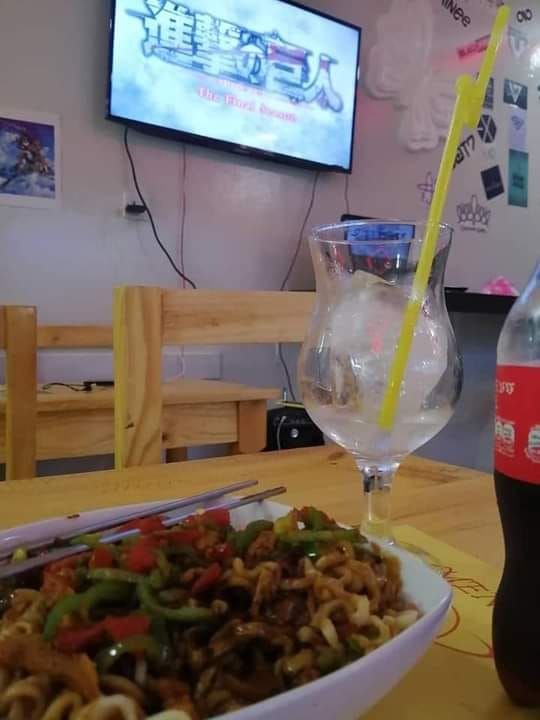
The Korean noodle dish that quickly became a favorite among our café’s guests.
To create a well-rounded experience, we added a menu featuring a selection of popular Korean dishes. We also set up a small corner shop that sold products related to Korean and Japanese culture, from merchandise featuring K-pop bands to anime goods and accessories loved by this kind of audience.
We regularly organized bazaars for small business owners who sold Korean-themed products through online platforms. We also had a wall decorated with drawings by the café’s visitors, which added a personal and interactive touch to the space. The café was a miniature cultural hub that embodied a deep passion for a distinctive way of life.
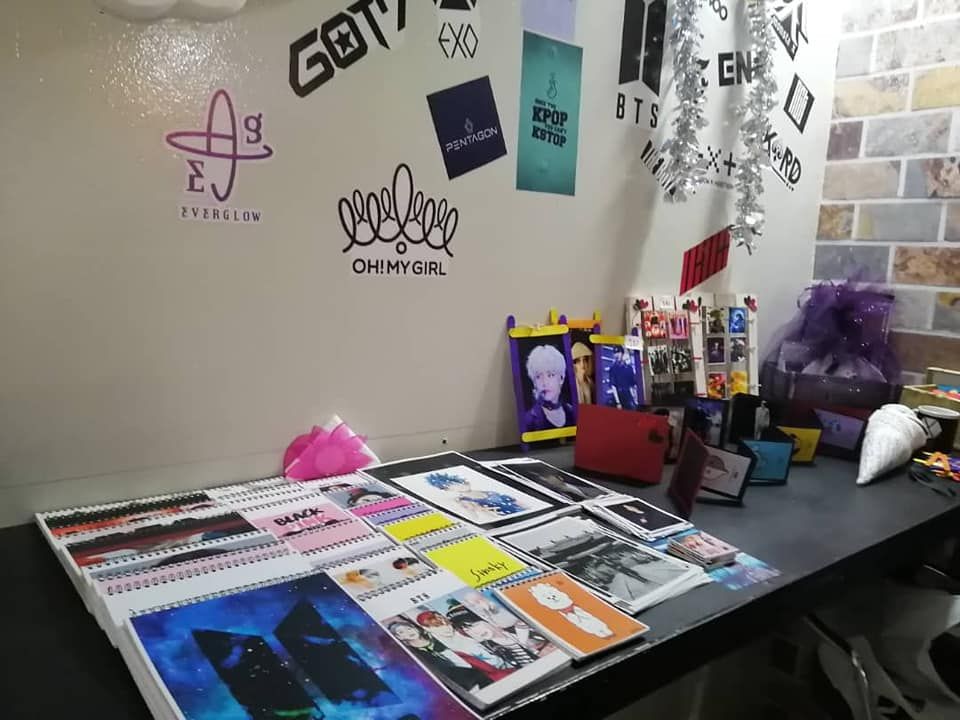
A photo from a bazaar held at the café for online store owners.
When we opened the café, the place was filled with life and excitement. Fans of Korean culture were overjoyed—they had finally found a space where they could gather, speak their own language, and share their passion with people who understood and resembled them.
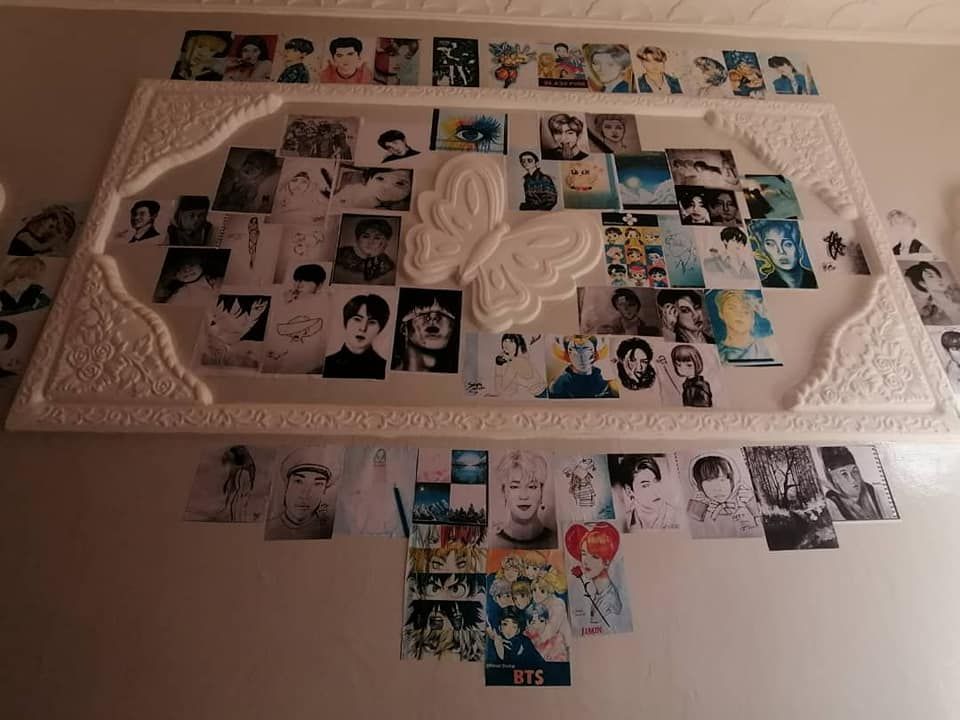
Our community art wall, featuring drawings from our café guests.
The café lasted for a full year, until the political situation in Sudan began to fluctuate once again. We faced a rapid rise in the dollar exchange rate and harsh economic impacts. We tried to hold on, but ultimately, we had to close the café temporarily until things stabilized.
However, the improvement we hoped for never came. Instead, the tragedy of war broke out on April 15th 2023, turning everything upside down.
My connection with Korean culture was never just a passing hobby; it was a journey that shaped me from within, broadened my worldview, and proved to me that passion can be a true driver of growth and a gateway to a new world. It helped me discover myself, come to terms with my differences, and transform my passion into a real project that I shared with my siblings, creating a small community full of life.
Although the café did not last, and the war tore down what we had built, the memory remains vivid, and the experience unforgettable. This journey taught me that true passion never fades, even when it stumbles, and that what we genuinely love can become our means of survival, resilience, and even creativity, even in the toughest circumstances. In the end, I no longer see Korean culture as just drama and songs, but rather as a mirror of what passion can create when given space. And maybe, when the storms calm down, I'll start over.
